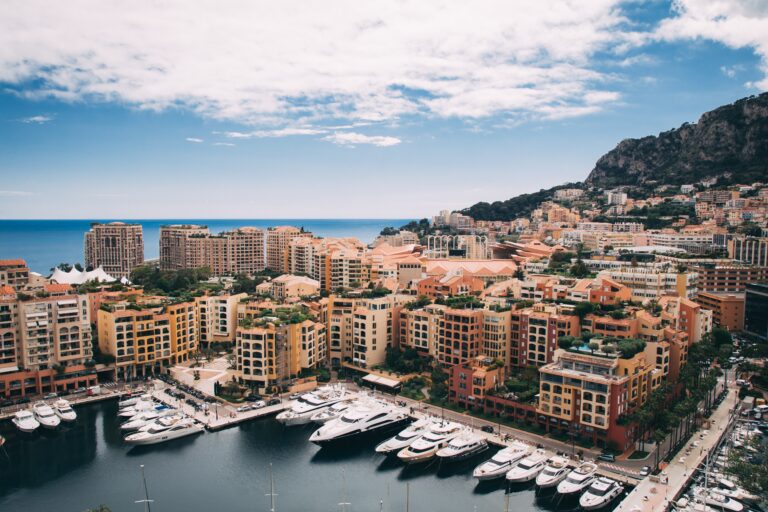It is often said lightly that Monaco is a tax haven, but is this true? What exactly does being a tax haven mean?
In this guide we will debunk several unfounded myths on this subject.
NEW REPORT
The report “The definitive guide to living in Monaco” is now available, with detailed information on Monaco’s tax framework, residence and society.
Click here to download it for free.
What is exactly a “tax haven”?
Many people think that a tax haven is a term that applies generically to any country with low taxation, but nothing could be further from the truth.
Nowadays the definition of tax haven has nothing to do with how much tax is paid, rather, it focuses on aspects such as transparency and the exchange of financial and tax information.
A tax haven is not a country with low or zero taxes, but a country that does not exchange tax information with others and does not have double taxation avoidance agreements with information exchange clauses.
Furthermore, just as someone is only guilty of something when determined by a judge, a country can only be called a tax haven when so determined by important countries and relevant supranational organisations.
And today the main actors and institutions don’t consider jurisdictions with zero taxation such as UAE or Qatar to be tax havens, but do so with those that do not share any tax information such as Panama or Fiji.

Who determines if a country is a tax haven?
Tax haven lists include those countries considered as such by other jurisdictions or international organizations. The main lists of tax havens that exist are as follows:
- National are those established by a country to decide which jurisdictions to consider as tax havens.
- International supranational organizations, such as the OECD or the EU, with major banking and business implications.
- International NGOs or the United Nations are understood more as a thermometer of good practices or social trends than as a real listing.
And, yes, Monaco was for decades in the national and international lists of tax havens due to the application of banking secrecy and the lack of exchange of information on tax matters with other countries.
In other words, for years money could be hidden in Monaco without the country of tax residence knowing about it. Nor was there very strong scrutiny of where that money came from.
So, is Monaco a tax haven nowadays?
No, Monaco is no longer considered a tax haven on any international listing for these reasons:
- Transparency and international cooperation commitments adopted by Monaco.
- Bilateral agreements on the exchange of tax information “on request”.
- The automatic exchange of information agreement or “Common Reporting Standard” (“CRS”) of the OECD.
Currently, most OECD members and all EU members recognize Monaco as a tax-approved jurisdiction and not as a tax haven:
- In April 2009, the OECD decided to remove Monaco from the list of non-cooperative tax havens in light of its commitments to transparency and effective exchange of information.
- It adhered to the BEPS inclusive framework, which implied that in 2017 ECOFIN agreed to leave Monaco definitively off the list of non-cooperative countries.
Who considers it a tax haven?
It is also true that some Latin American countries and the restrictive Intermon Oxfam still consider Monaco a tax haven, but these criticisms largely stem from outdated perceptions of banking secrecy. And, of course, this has no legal implications.
In addition, in June 2024 the Financial Action Task Force (FATF) placed Monaco on its “grey list”. This designation means that, for now, Monaco is subject to increased monitoring for potential money laundering and terrorist financing risks. In response, the Principality’s authorities have already outlined a timetable to implement the remaining FATF recommendations, with the aim of fully addressing these concerns and exiting the grey list by January 2026.
However, neither the OECD nor the European Union, the two most reputable actors in this matter, consider Monaco as a non-cooperative jurisdiction or tax haven. As a consequence, Monaco is internationally considered a country that complies with the requirements demanded according to the international tax principles, tax fairness, and transparency imposed by the same Union.
And yet, a paradise for the taxpayer
But the fact that it is not a tax haven in the eyes of third parties does not mean that it has lost its immense appeal to taxpayers.
Residents do not pay personal income tax (except for French nationals under a specific treaty), wealth tax, property tax, inheritance nor gift taxes (unless the beneficiary is not a spouse or child). Anyone who obtains tax residency in the Principality has the guarantee that will preserve a large share of his income and assets.
Corporate taxation in Monaco is equally favorable: companies are subject to tax only if more than 25% of their revenue is generated outside the Principality, with a standard rate of 25% that is easily reduced by tax breaks. Moreover, new companies benefit from full exemptions during the first two years, with tax liabilities gradually increasing thereafter.
Also, there are also no taxes on dividends, capital gains or interests. Together, these low-tax policies make Monaco a genuine paradise for the taxpayer.
How to get residency?
Unlike traditional “Golden Visa” programs available in other countries, obtaining residency in Monaco is mostly based on proving your financial stability: applicants typically must open an account with a Monegasque bank and deposit a significant sum (often starting at around €500,000) to secure a recommendation letter that allows them to move forward in obtaining residency.
Other routes include being employed by a local company, managing a business with verifiable income, or joining family members who already reside in Monaco. Successful applicants receive a Carte de Séjour, available in 1-year, 3-year, or 10-year permits, which can be renewed based on the length of residency.
Of course, residency also has other conditions such as the absence of a criminal record, owning or renting a home in the Principality, etc. Contact us so we can analyze whether your profile fits the requirements.
It’s important to note that holding a residence permit does not automatically make one a Monaco tax resident. To be officially recognized as a tax resident, you must apply for and obtain a certificate of tax residence. After at least ten uninterrupted years of residency, there is also the option to apply for Monaco citizenship, though this involves additional requirements beyond the standard residence permits.
Thinking of moving to Monaco?
If you are interested in changing your tax residence to Monaco, we recommend reading the report “The definitive guide to living in Monaco”, available for free below.
For any questions, you can contact us without obligation by sending an email to [email protected] or through our contact page.
Sources
- https://www.bbc.com/news/world-europe-17615784
- https://monservicepublic.gouv.mc/en/themes/tax/information/general-information/tax-in-monaco
- https://monentreprise.gouv.mc/en/themes/accounting-obligations-and-tax/tax/other-taxes-and-duties/corporate-income-tax
- https://en.gouv.mc/Government-Institutions/The-Government/Ministry-of-Finance-and-Economy/Department-of-Tax-Services
- https://en.service-public-particuliers.gouv.mc/Residency/Settling-in-Monaco/How-to-obtain-a-residence-permit/Conditions-for-issuing-residence-permits



 All communications are encrypted and will be treated with absolute confidentiality. Your data will never be shared with third parties.
All communications are encrypted and will be treated with absolute confidentiality. Your data will never be shared with third parties. 




